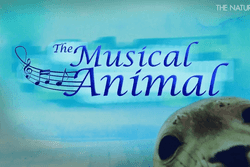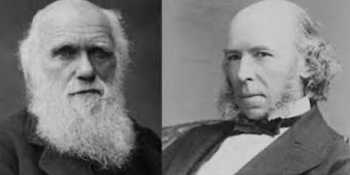The Music Cognition Group (MCG) is part of Music Studies, the Institute for Logic, Language and Computation (ILLC), and Amsterdam Brain and Cognition (ABC) of the University of Amsterdam (UvA) and is housed at LAB42, Science Park Amsterdam.
Our research offers interdisciplinary perspectives on the capacity to perceive, make, and appreciate music (‘musicality’ for short). It asks what music is for and why every human culture has it, whether musicality is a uniquely human capacity, and what biological and cognitive mechanisms underlie it.
The current research program aims to identify the basic mechanisms that constitute the cognitive and biological basis of musicality, as well as developing theoretical, computational and empirical methods for analyzing various musicality phenotypes.
Meet our researchersMedia attentionF.A.Q.What is music cognition?
We are all born with a predisposition for music, a predisposition that develops spontaneously and is refined by listening to music. Nearly everyone possesses the musical skills essential to experiencing and appreciating music. Think of “relative pitch,” recognizing a melody separately from the exact pitch or tempo at which it is sung, and “beat perception,” hearing regularity in a varying rhythm. Even human newborns turn out to be sensitive to intonation or melody, rhythm, and the dynamics of the sounds in their surroundings. Everything suggests that human biology is already primed for music at birth with respect to both the perception and enjoyment of listening.
Human musicality seems special; Musicality being a set of natural, spontaneously developing traits based on, and constrained by, our cognitive abilities (attention, memory, expectation) and our biological predisposition. But what makes it special? Is it because we appear to be the only animals with such a vast musical repertoire? Is our musical predisposition unique, like our linguistic ability? Or is musicality something with a long evolutionary history that we share with other animals? (Honing, 2019).
Latest news

Henkjan Honing presents keynote on invitation by HM the King
Henkjan Honing, Professor of Music Cognition at the UvA, was invited to give a keynote at the Paleissymposium entitled: Musical Animals: Are we? Can there be?

Henkjan Honing elected member of the Academia Europaea
Henkjan Honing, Professor of Music Cognition at the UvA, has been elected as a member of the Academia Europaea’s The Human Mind and its Complexity section. The Academia Europaea is a European Academy of Humanities, Letters and Sciences. Among its members are seventy-two Nobel Laureates. Membership is by invitation, made after peer group nomination, scrutiny and confirmation as to the scholarship and eminence of the individual in their chosen field.

Rhythmus im Blut. Sind Tiere musikalisch?
From 7 December 2024 online at ARTE: The Music Animal (2022, CBC) featuring profs. Henkjan Honing, Yuko Hattori, Ani Patel and others. | "Musik ist ein Rätsel der Evolution. Menschen singen, tanzen, fühlen den Beat. Diese Fähigkeit, Musik wahrzunehmen, zu genießen und selbst zu produzieren, nennt man Musikalität. Doch ist der Homo sapiens die einzige musikalische Spezies? Die Dokumentation gibt Einblicke in die bisherige Erforschung von Musikalität und Rhythmus in Natur und Tierwelt auf der Suche nach ihren Ursprüngen."

Interested in a challenging postdoc position in Amsterdam?
Are you looking for a postdoctoral position where you can combine insights from music cognition with biology and cognitive science? If you are excited about doing this kind of research in an interdisciplinary environment, with a team of smart and friendly colleagues, then you may want to join us.
Latest publications
Media attention
Onderzoekers leren apen bewegen op het ritme van muziekVolkskrant
These birds are beeping and booping like R2-D2. Which one did it best?Smithsonian Magazine
Welke vogel kan het beste R2D2 nadoen? Een papegaai?NTR Wetenschap
Welke vogelsoort imiteert R2D2 het best? ‘Onderdeel van seksuele selectie’Folia
Music Matters
Latest posts from Henkjan Honing’s blog Music Matters

No progress since Darwin and Spencer?

Are humans unique?

Musical Animals: Are we? Can there be?
![Gaat muzikaliteit aan muziek én taal vooraf? [Dutch]](/static/3d2a2495a79305851112dc6da7dcf3f4/ed594/woe(2).jpg)

